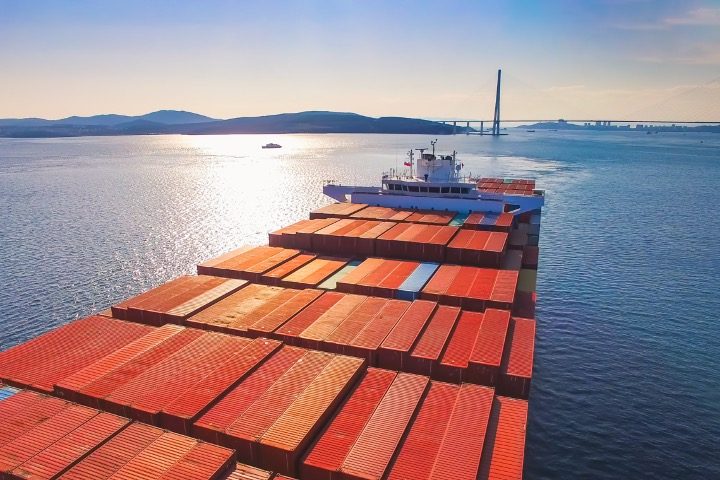
America’s recent troubles in the Red Sea have ramifications that go beyond backtracked cargo and skirmishes with Islamic militias. At stake is global dominance of maritime trade — and the consequent dominance of global politics.
As The New American has documented, U.S. naval forces are embroiled in conflict with Iran-backed Houthi militants in the Red Sea in order to prevent this Yemeni militia from targeting Western commercial vessels. Attacks from the Houthi have set back supply chains and prompted big firms such as CGM, Hapag-Lloyd, and BP to avoid the Suez Canal over safety concerns.
But while the United States and its allies reel from the complications caused by the situation in the Red Sea, Russia — a close ally of Iran — is benefiting from it.
As Russia Today (RT) reports:
The Red Sea, a pivotal conduit for international commerce, is now a contested arena as Houthi rebels from Yemen escalate their attacks. Houthi leaders have said they are pursuing all Israel-bound vessels due to hostilities in Gaza, and they appear to be targeting Western ships. At the same time, an increasing number of Russian oil tankers continue to navigate the waters to deliver oil shipments to Asia, adding a layer of complexity to the situation. If substantiated, this selective targeting highlights the geopolitical intricacies in play, positioning maritime trade as a pawn in broader geopolitical maneuvers.
In short, the U.S. is gradually losing its influence in the Red Sea, a historically important trade route, while Russia’s grip on those waters tightens.
This is good news for Russia given the country’s increased dependence on trade with Asia to sustain its oil industry. Due to the Russian war with Ukraine, Europe has actively been looking for alternatives to Russian petroleum, causing Moscow to market its oil to Asia instead. As a result, Russia’s Red Sea oil traffic has gone up by 140 percent. This reality necessitates access to safe and reliable transit over the Red Sea — something the Houthi are providing Russia even while denying it to the U.S. and its allies.
The Houthi have used the Israel-Palestine conflict as their justification, attacking ships headed toward Israel amid the fighting in Gaza. But the detrimental effects of the Houthi attacks on the trade of America and its allies (and the boost to Moscow) cannot be lost on the Houthis’ masters in Tehran.
And Russia has another ace up its sleeve: the Northern Sea Route (NSR) to China, which stretches 3,500 miles along Russia’s arctic coast. The route allows Russian vessels to reach China’s Rizhao port in just 35 days, which is 10 days less than the usual route by way of the Suez Canal. It also gives Moscow a way of avoiding sanctions and possibly turbulent waters transited by the West.
According to RT:
[Russia’s Rosatom State Nuclear Energy Corporation], overseeing the NSR, highlights that non-ice-class ships can now safely navigate the route during improved conditions in summer and autumn. This strategic shift suggests Russia is exploring the use of non-ice-class vessels, potentially reshaping conventional shipping practices in the Arctic.
Russia’s proactive stance is further evidenced by the expansion of its dark fleet, ensuring the continuity of oil revenues despite sanctions. Deputy Prime Minister Yuri Trutnev anticipates a record-breaking year for the NSR, with freight turnover expected to exceed 36 million tons — a ninefold increase since 2015.
Western sanctions against Russia have been far less effective than hoped, and even arguably of net benefit to Moscow by providing it further incentive to develop its own system to gain further independence from U.S. hegemony. Russian President Vladimir Putin spoke to this trend toward greater independence and autonomy during a press conference this month in which he was asked about his policy priorities for the country.
“I have talked about it many times, but it would not hurt to repeat it once again: a country like Russia simply cannot exist without sovereignty; it will simply cease to exist [without it], at least in the form in which it has existed for a thousand years,” said Putin. “That said, the main thing is to strengthen sovereignty.”
The Russian president added: “Strengthening external sovereignty, let’s put it this way, requires boosting the country’s defense capabilities and security along its borders. It’s also about strengthening public sovereignty, which includes the unequivocal protection of the rights and freedoms of the country’s citizens, as well as the development of our political system and parliamentarism. Finally, it entails efforts to ensure security in the fields of sovereignty and the economy.”
While Russia has increased its independence and sovereignty, the U.S. has become increasingly dependent on foreign powers for everything from its energy and manufacturing needs to food and medical supplies. The conflict with the Houthi in the Red Sea demonstrates that, unlike Russia, American trade is still at the mercy of hostile powers.
In his magnum opus The Influence of Seapower Upon History, Alfred Thayer Mahan argued that naval supremacy is essential for a nation to be master of its own destiny. By this principle and given current realities, America cannot long be expected to remain free.




